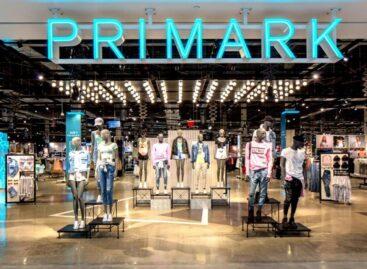H&M feels the effects of the trade war and the decline in demand in Asia
The trade war and the decline in demand in Asia are having a negative impact on Hennes & Mauritz (H&M)’s performance: the Swedish fashion chain achieved revenue of 56.7 billion kronor between March and May, a 5 percent decrease compared to the previous year. The size of the network has also shrunk, with only 4,166 stores operating this year instead of 4,319 last year, mainly due to closures in Asia. H&M plans to open a total of 80 new stores this year, while closing 200.
 The strengthening of the Swedish krona – especially against the US dollar – has also had a negative impact on sales, although a slight 1 percent increase was recorded in the local currency. Online sales are becoming increasingly important: 30 percent of total sales now come from the web store, although Chinese companies Temu and Shein remain serious competitors. Based on the data so far, they expect a 3 percent increase by June.
The strengthening of the Swedish krona – especially against the US dollar – has also had a negative impact on sales, although a slight 1 percent increase was recorded in the local currency. Online sales are becoming increasingly important: 30 percent of total sales now come from the web store, although Chinese companies Temu and Shein remain serious competitors. Based on the data so far, they expect a 3 percent increase by June.
The company’s second-quarter operating profit was 5.91 billion kronor, a 17 percent drop but still above analysts’ expectations. Gross profit margin fell to 55.4 percent. According to CEO Daniel Erver, economic uncertainty has made customers more cautious. H&M is closely monitoring developments related to Trump’s punitive tariffs, as the US market is of paramount importance to them, with a significant portion of their goods exported from the Far East.
In the first half of the year, revenue from the US was 25.2 billion kronor, 2 percent less than last year. However, they experienced an 8 percent decline in the second quarter. On the other hand, they are expanding in Latin America, entering new markets in El Salvador, Paraguay and Venezuela. Following the quick report, H&M’s share price rose 6 percent.
Related news
Related news
Nestlé to sell remaining ice-cream assets but commits to Froneri venture
🎧 Hallgasd a cikket: Lejátszás Szünet Folytatás Leállítás Nyelv: Auto…
Read more >Lidl guarantees fairer prices for cocoa farmers
🎧 Hallgasd a cikket: Lejátszás Szünet Folytatás Leállítás Nyelv: Auto…
Read more >








